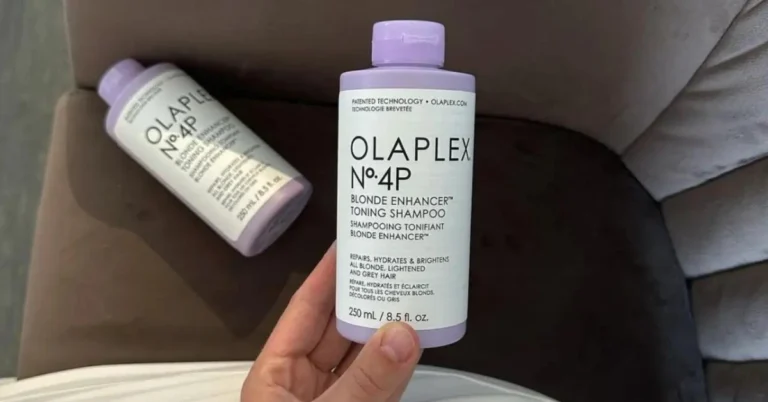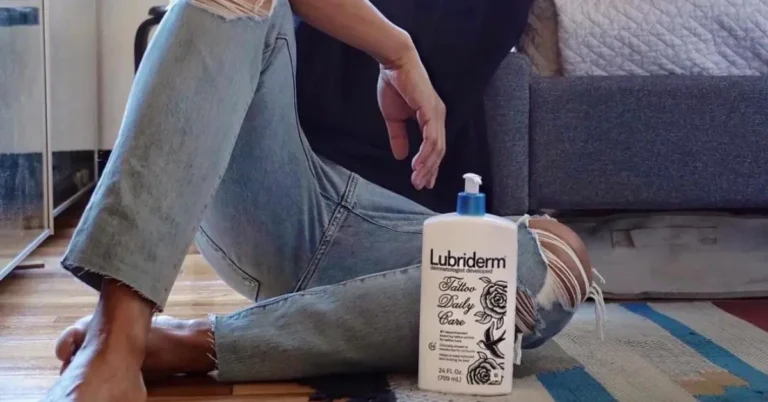Do you find yourself overwhelmed by the myriad of skincare options, in search of a trustworthy brand? I understand the challenge in discovering products that are both secure and efficient. Amidst all these claims of remarkable outcomes, how can you distinguish genuine quality from mere marketing tactics?
Enter Cetaphil – a name that has taken the skincare realm by storm. But let’s face it, with the avalanche of products available, it’s tough to peel back the layers and unearth what’s really inside those bottles. You deserve to know what you’re putting on your skin, and that’s precisely where we come in.
Get ready for a revelation that’s about to change your skincare game for good. In a world full of uncertainty and overwhelming choices, we’ve embarked on a mission to uncover hidden truths. Does Cetaphil have parabens?
Table of Contents
Does Cetaphil Have Parabens?
The answer is yes and no, some Cetaphil products do contain parabens, others are paraben-free
Parabens are a type of preservative that has been used in beauty products for decades. However, in recent years, there has been growing concern about the safety of parabens and their potential link to certain health issues. As a result, many people are opting for paraben-free products, and it’s important to know if Cetaphil is one of them.
So, does Cetaphil have parabens? The answer is yes and no. While some Cetaphil products do contain parabens, others are paraben-free. It’s important to read the label carefully and do your research to find the right product for your needs.
In the following sections, I’ll dive deeper into which Cetaphil products contain parabens and which ones don’t, so you can make an informed decision about what to use on your skin.
Understanding Parabens

Parabens are a family of synthetic preservatives that are commonly used in cosmetics and personal care products. They are added to these products to prevent the growth of bacteria, mold, and fungi, which can cause the product to spoil or become contaminated. Parabens are also used to extend the shelf life of these products.
Parabens are found in a wide variety of products, including shampoos, conditioners, body lotions, facial cleansers, and makeup. They are often listed on the ingredient label as methylparaben, ethylparaben, propylparaben, butylparaben, or isobutylparaben.
There has been some concern about the safety of parabens in recent years, as some studies have suggested that they may be linked to certain health problems. However, most experts agree that parabens are safe to use in cosmetics and personal care products at the levels typically found in these products.
It is important to note that not all products contain parabens. If you are concerned about the presence of parabens in your cosmetics and personal care products, you can look for products that are labeled as “paraben-free” or “preservative-free.” Many companies now offer these types of products, and they can be found in most drugstores and online retailers.
The Role of Parabens in Skincare Products
As someone who is passionate about skincare, I always make sure to read the ingredient list before buying a product. One ingredient that has been getting a lot of attention lately is parabens. So, what exactly are parabens, and why are they so controversial?
Parabens are a group of synthetic preservatives that are commonly used in cosmetics and personal care products. They work by preventing the growth of bacteria and fungus, which helps to extend the shelf life of the product. Parabens are cheap and effective, which is why they are so widely used.
However, there are concerns about the safety of parabens. Some studies have suggested that parabens may disrupt hormone function and increase the risk of breast cancer. While the evidence is not conclusive, many people prefer to avoid products that contain parabens.
If you’re wondering whether Cetaphil has parabens, the answer is yes and no. While some of their products do contain parabens, many of them are paraben-free. For example, their Daily Defence Face Moisturiser with SPF 50+ contains parabens, while the rest of their UK range is paraben-free.
Remember: If you’re concerned about parabens, make sure to read the ingredient list carefully before buying a product. Look for products that are labeled “paraben-free” or “preservative-free.”
Pros and Cons of Parabens in Skin Care Products

As someone who has always been conscious of the ingredients in my skin care products, I’ve done my fair share of research on parabens. Parabens are a type of preservative commonly used in cosmetics and personal care products to prevent the growth of bacteria and mold.
But are they safe for use in our skin care products? Let’s take a closer look at the pros and cons of parabens.
Pros of Parabens
One of the biggest pros of parabens is their effectiveness as a preservative. They are able to prevent the growth of bacteria and mold in our skin care products, which helps to extend their shelf life. This means that our products are less likely to go bad and become contaminated, which can lead to skin irritation or infection.
Cons of Parabens
PARABENS PEOPLE PARABENS. CETAPHIL IS NOT GOOD FOR SENSITIVE SKIN! https://t.co/9sFWDcOlpx
— } )i( { (@anxagi) November 5, 2019
Despite their effectiveness as a preservative, there are some concerns about the safety of parabens. Some studies have suggested that parabens may disrupt our hormones, which can have negative effects on our health. Additionally, parabens have been found to accumulate in our bodies over time, which can be concerning for long-term use.
Personally, I try to avoid products that contain parabens as much as possible. While the evidence on their safety is still inconclusive, I prefer to err on the side of caution and choose products that are free of parabens.
Cetaphil and Its Ingredients
As a skincare brand, Cetaphil has gained a reputation for being gentle and effective. However, many people wonder if Cetaphil products contain parabens. In this section, I will analyze the ingredient list of Cetaphil products to answer this question.
Analyzing the Ingredient List

Cetaphil products use easily recognizable ingredients like water, cetyl alcohol, propylene glycol, stearyl alcohol, and methylparaben. However, the presence of methylparaben has raised concerns among some consumers.
Methylparaben is a type of paraben commonly used in cosmetics as a preservative. It has been linked to reproductive, immunological, neurological, and skin irritation problems. While the amount of methylparaben used in Cetaphil products is within safe limits, some people prefer to avoid products that contain parabens altogether.
Cetaphil also uses other ingredients like niacinamide and panthenol, which have hydrating and soothing properties. These ingredients can help improve the overall health and appearance of the skin.
Cetaphil’s Stance on Parabens
As a skincare brand, Cetaphil understands the importance of using safe and effective ingredients in their products. One ingredient that has been a topic of concern in recent years is parabens. So, does Cetaphil have parabens in their products? The answer is yes and no.
According to their website, Cetaphil has a range of paraben-free products, including their Gentle Skin Cleanser, Oily Skin Cleanser, and Daily Defense Face Moisturizer with SPF 50+.
However, some of their other products do contain parabens. It’s important to note that parabens are used as a preservative in many skincare products to prevent the growth of bacteria and mold.
Cetaphil acknowledges the concerns surrounding parabens and has taken steps to offer paraben-free options for their customers. They state that all of their products undergo rigorous testing to ensure safety and efficacy, and they follow strict guidelines set by regulatory agencies.
While parabens have been linked to potential health risks, the scientific community has not reached a consensus on their safety. The FDA has deemed parabens as safe for use in cosmetics at low levels, but some consumers prefer to avoid them altogether.
Alternatives to Parabens in Skincare

When it comes to skincare, many people look for products that are free of parabens. Parabens are a type of preservative that are commonly used in skincare products, but they have been the subject of controversy in recent years due to concerns about their potential health effects. If you’re looking for alternatives to parabens in your skincare routine, here are some options to consider.
Natural Preservatives
One alternative to synthetic preservatives like parabens is to use natural preservatives. These can include ingredients like rosemary extract, grapefruit seed extract, and vitamin E. These ingredients have antimicrobial properties that can help to keep your skincare products fresh and free of harmful bacteria.
Another natural preservative that is becoming increasingly popular is phenoxyethanol. This ingredient is derived from natural sources like green tea and chicory, and it has been shown to be effective at preserving skincare products without the use of parabens.
When looking for skincare products that use natural preservatives, it’s important to read the labels carefully and make sure that the ingredients are actually natural. Some products may claim to be natural but still contain synthetic preservatives like parabens.
Pro tip: One way to ensure that your skincare products are free of parabens and other synthetic preservatives is to make your own products at home using natural ingredients. There are plenty of recipes available online for things like facial cleansers, toners, and moisturizers that use natural preservatives.
The Impact of Parabens on Health
As someone who cares about their health and the products they use, it’s important to understand the impact that certain ingredients can have on our bodies. Parabens are a common preservative used in many personal care products, including skincare. But what exactly are parabens, and what impact can they have on our health?
Parabens are a group of synthetic preservatives that are used to prevent the growth of bacteria and fungi in personal care products. They are often listed on product labels as methylparaben, ethylparaben, propylparaben, or butylparaben. While they are effective at keeping products fresh, there is growing concern about the potential health risks associated with their use.
One of the main concerns with parabens is their potential to disrupt the endocrine system. The endocrine system is responsible for regulating hormones in the body, and any disruption to this system can have serious consequences.
Studies have shown that parabens can mimic the hormone estrogen in the body, which can lead to a range of health issues, including breast cancer, reproductive problems, and developmental disorders.
In addition to their potential impact on the endocrine system, parabens have also been linked to skin irritation and allergic reactions. This is particularly concerning for those with sensitive skin or conditions like eczema or psoriasis.
Making an Informed Decision
As someone who cares about my skin and what I put on it, I want to know if the products I use contain harmful ingredients like parabens. After doing some research, I found that Cetaphil products do contain parabens, specifically methylparaben, propylparaben, and butylparaben.
While parabens have been linked to reproductive, immunological, neurological, and skin irritation problems, it’s important to note that the levels of parabens in Cetaphil products are within safe limits set by regulatory agencies. However, if you’re still concerned about the potential risks of using products with parabens, there are paraben-free alternatives available.
Personally, I’ve used Cetaphil products for years and have never experienced any adverse effects. However, I understand that everyone’s skin is different and what works for me may not work for someone else. It’s important to do your own research and make an informed decision based on your own needs and concerns.
Remember: When shopping for skincare products, don’t just rely on the front label claims. Be sure to read the ingredient list on the back of the product to know exactly what you’re putting on your skin.
Does Cetaphil Have Parabens: The Essentials
As someone who is conscious about the ingredients in my skincare products, I was curious about whether Cetaphil contains parabens. After conducting some research, I found that Cetaphil does contain parabens in three of their products:
- Gentle Skin Cleanser
- Oily Skin Cleanser
- Daily Defense Face Moisturizer with SPF 50+
However, all other Cetaphil products are free of parabens.
So, what are parabens? Parabens are a type of preservative that have been used in beauty products since the 1920s. They are used to increase the shelf life of products and prevent the growth of bacteria and fungi. However, parabens have been linked to potential health risks such as hormonal disruption, skin irritation, and even cancer.
If you are concerned about using products that contain parabens, it is important to read the ingredient list carefully. Cetaphil clearly labels which of their products contain parabens, so you can make an informed decision about whether to use them or not.
Key takeaways:
- Cetaphil contains parabens in three products: Gentle Skin Cleanser, Oily Skin Cleanser, and Daily Defense Face Moisturizer with SPF 50+.
- All other Cetaphil products are free of parabens.
- Parabens are a type of preservative that have been linked to potential health risks.
- Cetaphil labels which of their products contain parabens, so you can make an informed decision about whether to use them or not.
- The Gentle Skin Cleanser is still considered safe to use despite containing parabens, but those with sensitive skin may want to avoid them altogether.
FAQ:

Does Cetaphil use harmful ingredients?
Cetaphil contains several skin-harming ingredients, including parabens, propylene glycol, and sodium lauryl sulfate. Endocrine disruption increased chemical penetration into the skin and bloodstream, skin irritation, and cancer have all been linked to these ingredients.
Is Cetaphil products safe?
Cetaphil products are generally thought to be safe for sensitive skin. The cleanser contains no soap and uses synthetic cleansers rather than fats, which can strip or irritate the skin.
However, because it contains potentially irritating ingredients like cetyl alcohol and sodium lauryl sulfate, it may not be suitable for all skin types. As with any product, read the label and look for potential allergens or irritants.
Are there chemicals in Cetaphil?
Cetyl alcohol, propylene glycol, sodium lauryl sulfate, stearyl alcohol, methylparaben, propylparaben, and butylparaben are among the chemicals found in Cetaphil. These ingredients have the potential to cause endocrine disruption and increase chemical penetration, making them potentially harmful to skin.
Is Cetaphil face wash chemical free?
Cetaphil Daily Facial Cleanser contains no potentially harmful hormone-altering chemicals or ingredients such as Phthalates, Bisphenols, Parabens, halogenated phenols (such as Triclosan), Benzophenone-3, Perfluoro (PFAS) compounds, hexylresorcinol, or other ingredients. Cetaphil Face and Body Gentle Skin Cleanser is also paraben-free. Cetaphil Gentle Foaming Cleanser is 91% allergen-free and contains no gluten, nickel, preservatives, lanolin, or parabens. It does, however, contain 8 ingredients, suggesting that it may not be completely chemical-free.
Are the parabens in Cetaphil harmful?
The FDA and other health authority bodies around the world believe that there is currently no reason for consumers to be concerned about using paraben-containing cosmetics. Cetaphil’s products have been reformulated to be free of parabens, sulfates, mineral oil, and animal-derived ingredients. However, some people may still want to avoid using skin care products containing parabens, sodium lauryl sulfate, and propylene glycol.
Why do dermatologists always recommend Cetaphil?
Cetaphil is frequently recommended by dermatologists because it is a gentle, non-irritating facial cleanser that contains no fragrance. It’s also soap-free, which means it won’t strip or irritate sensitive skin, and it hydrates as it cleans, making it ideal for sensitive skin. Cetaphil, on the other hand, may not be suitable for all skin types and may not always remove acne or target aging symptoms.
If you liked this blog article about the question: Does Cetaphil Have Parabens, don’t forget to leave us a comment down below to tell us about your experience with Parabens.





